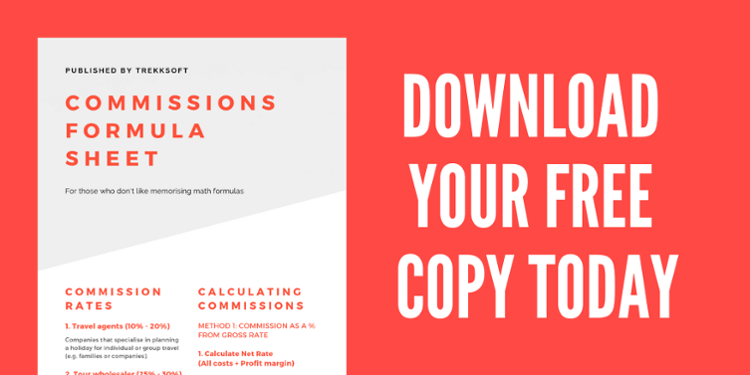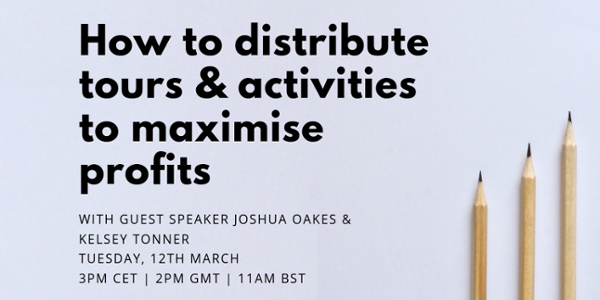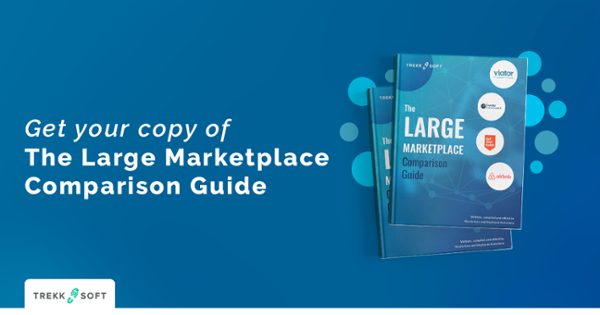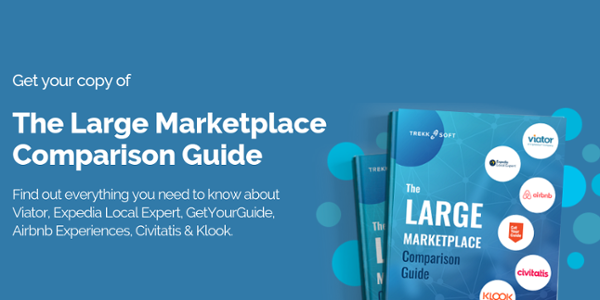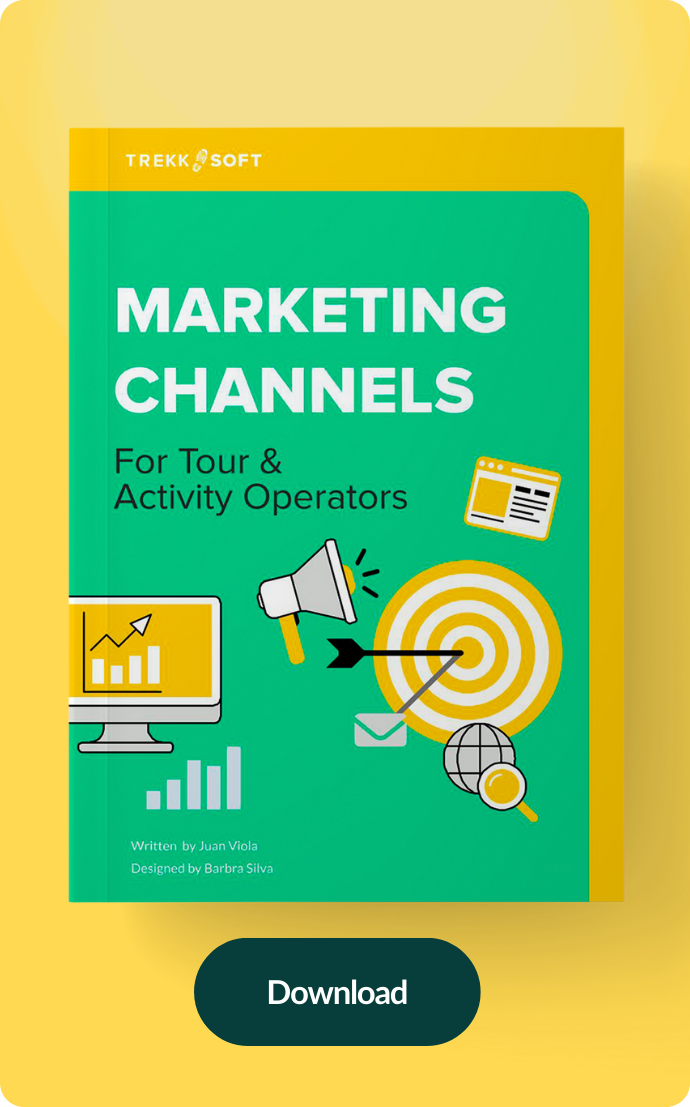This article was published in 2018 and has been updated since for comprehensiveness.
One way to grow your booking volume is by growing your distribution strategy to get your services in front of a larger audience. This usually involves working with a reseller who relies on a commission to keep their business going. But deciding on the amount of commission to pay a reseller can be tricky and calculating it can be confusing.
Here's our guide to help you set the right commission rate with your resellers.
Why should tour and activity operators pay a commission?
Commission is the fee you pay your distributors or resellers for promoting and selling your products. It also gives them an incentive to sell your tours or activities over someone else's.
Why work with resellers? Because they make it easier for you to market your services to your target audience especially since they have a lot more marketing experience than you do. It is, after all, their job to promote tourism products to niche and mass markets, offline and online. Working with distributors can also expand your reach, for example, by promoting your products overseas.
While working with distributors is another cost you incur, you should think about how much more you stand to gain if you work with them.
How much commission do tour and activity companies usually pay?
Your commission goes to whoever your customers book from. If your customers book through an OTA, that's who you'll be paying your commission to. If they book through a travel agent, you'll pay a commission to them instead.
Traditionally, people booked holidays via a travel agent, who would plan and arrange the entire holiday experience for their customers. They would refer to a tour wholesaler to find tours and activities for their customers to do while in destination. The tour wholesaler would then liaise with a country's inbound tour operator to get the right tour and activity supplier for the job. That's when the inbound tour operator sends you an email or gives you a call to tell you that you've got a booking.
Here are the general guidelines for commission rates throughout the industry.
1. Travel agents - 10% - 20% of retail price
Nowadays, travel agents are commonly used by big companies to arrange a holiday for their staff, or by multi-generational groups (i.e. Baby Boomers, their kids and their grand kids).
The travel agent would be the person to arrange the logistics for the travel group and suggest itineraries for the group too. By giving travel agents a commission, you give them an incentive to suggest your services over another company.
2. Tour wholesaler - 25% - 30% of retail price
Tour wholesalers link individual suppliers with tour operators, providing travel packages that include flights, accommodation and your tours and activities.
When working with travel agents, they promote tour packages that they think will appeal to the agents' customers.
Therefore, the commission charges quoted by a tour wholesaler will differ amongst suppliers. It will also differ depending on whether you want to market your services locally or internationally.
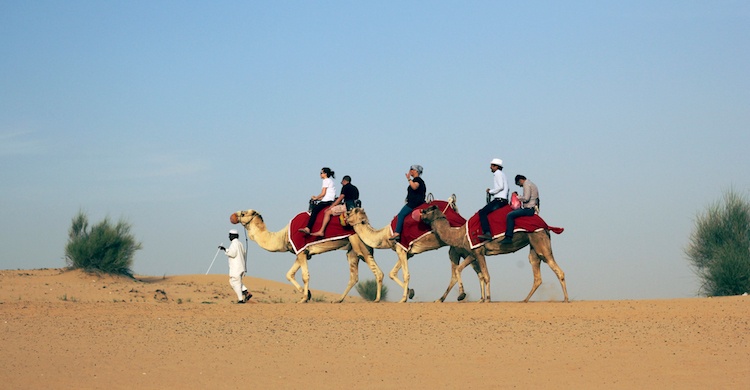
3. Inbound tour operators - 25% - 30% of retail price
Inbound tour operators are based in your country and link local suppliers (i.e. tour and activity operators, hoteliers, transport services etc.) with overseas buyers, may it be tour wholesalers, direct sellers, travel agents or event planners.
ITOs are able to tailor their travel packages according to the needs and wants of their customers, creating an itinerary that covers accommodation, tours, transport and even meals. They can also coordinate the booking and payment of travel arrangements on behalf of their customers.
Access the workshop: How to work with Incoming Tour Operators?
4. Online travel agents - 15% - 25% of retail price
Online travel agents like Viator, Expedia and Musement are growing as more and more consumers and suppliers become aware of them. In our recent survey, we found that a majority of suppliers are willing to pay no more than 15% on commission for distribution via OTAs, which is below the average of 20% commission usually charged.
As noted by Olan, although working with OTAs increases your exposure and expands your reach, a 20% commission can be a little steep, especially if you're just starting out. On top of that, OTAs usually demand the lowest possible price you can go, because they don't want you undercutting them on other platforms (like your own website).
But they are the new norm and if your business doesn't have a website or an online booking and payment system yet, this is a relatively inexpensive way to get your tours online.
Further reading on OTAs:
- Pros and cons of working with OTAs
- How to make more money with OTAs
- 3 ways to manage your OTAs more effectively
5. Offline resellers (15% - 30%)
Offline resellers can be a hotel concierge, a booking agent on the street with a small stand, your local a visitor bureau or tourist information desk. Commission for these types of distribution channels vary a lot more due to the location of their offices, the foot traffic they get and the clientele they're able to attract.
Interestingly, we found that offline and in-person sales bring in lower booking numbers that online channels, but they generate higher booking value. This means that they make more money for your company despite bringing in lower booking volumes.
6. Override commission - no more than 5% of retail price
Override commission is the extra commission you give to certain distributors to incentivize them to promote your tours over your competitors. Of course this commission is completely up to you, and you're free to use it as a tool whenever you like.
Remember that you don't need to pay these commission charges separately.
If you pay a travel agent 20%, they will keep the 10% and give the other 10% to the intermediary they work with. The same goes for other distributors.
Download to find out the commission charges of large online marketplaces
How to calculate your commission rates?
Net rate = All costs + Profit margin
This is the amount you pass on to your distributors, before they add their commission charges to the final price. Your net rate should take into account your fixed and variable costs, as well as your profit margin.
Check out a previous article I wrote to help you set the right price for your tours and activities.
Gross rate = Net rate + Commission rate
The gross rate is the final price your customers pay, which includes your distribution commission. Your commission rate is usually charged as a percentage, also known as a mark-up percentage.
So, if the commission rate is 30% and your quoted net rate is €150, this is how you would calculate your final price:
Given Gross rate (100%) = Net rate (70%) + Commission rate (30%)
Gross rate (100%) =€150 (70%) + Commission rate (30%)
Therefore, Gross rate =€150/70% =€214
Here's a simple rule of thumb you can follow:
| Commission rate | Net rate | Calculation | Gross rate |
| 5% | €150 | €150/0.95 | €158 |
| 10% | €150 | €150/0.9 | €167 |
| 20% | €150 | €150/0.8 | €187.5 |
| 30% | €150 | €150/0.7 | €214 |
For more resources, visit Tourism Boost by Small Business Development Corporation.

How can you improve your distribution strategy?
1. Experiment with different distributors
Each distributor will help you reach a different market, locally or internationally, niche or mass market. Package your product to meet the requirements of the distributor you wish to work with and monitor your results on a quarterly basis. You should be able to figure out within a year which channels work best for your business.
Read more: 10 channels to promote your tours and activities
2. Use a booking system with a live inventory
A booking system with a live inventory will allow your distributors and customers from OTAs to look at your availabilities at any time and adjust your availability whenever a booking is made. This way, you avoid multiple data entries, human errors and preventing overbooking.
3. Manage your distribution channels with an integrated booking system
An integrated booking system with features like TrekkSoft's Partner Network and Agent Desk will allow your resellers to book directly into your system, without the hassle of a phone call or email. You can also adjust the commission to pay for each reseller, allowing you to keep track of their performance too.
Read more: Channel Manager 101: How to connect to and sell on large marketplaces
Need help deciding which online travel agent you should be working with? We've got you covered.

